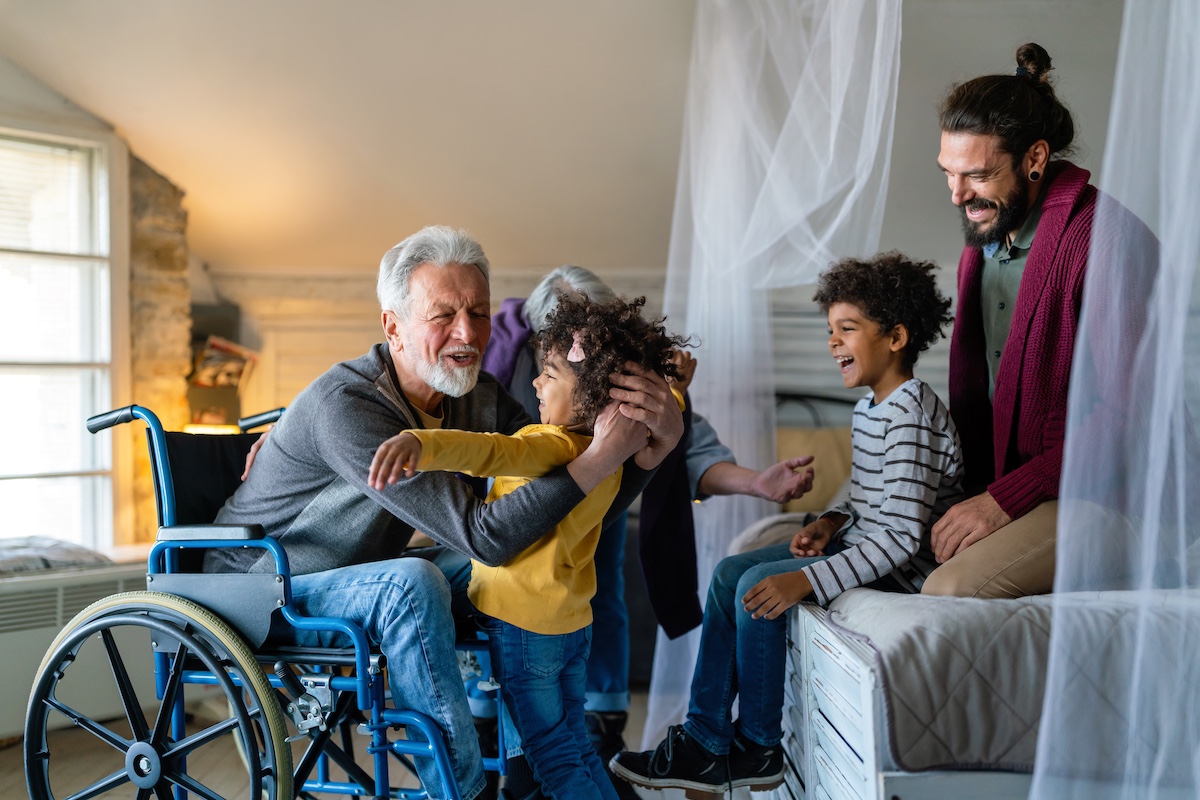If you or a family member has a serious illness, treatment decisions often focus on attempts to cure their condition. But what about other needs, like relieving pain and improving quality of life? What about other life challenges that often come with an unexpected health crisis?
That’s where palliative care comes in. Unlike treatments designed to cure an illness, palliative care offers symptom relief. It may also include social, emotional, spiritual and practical support for patients and families.
For those with a terminal diagnosis, hospice care provides comfort as the end of life approaches. Many people use the terms palliative and hospice interchangeably, but they are not the same thing. Let’s talk about how these two types of specialty care overlap and how they are different. We’ll also go over different types of palliative care that may be appropriate for you or a loved one.
What Do Hospice and Palliative Care Mean?
Palliative care is a specialized type of medical treatment intended to improve comfort and quality of life, rather than to cure any particular illness. It is often combined with curative treatments for patients who are expected to survive. It may also be provided in a hospice setting for patients who have received a terminal diagnosis.
Patients who benefit from palliative care include those with cancer, heart disease, COPD, dementia, Parkinson’s disease and other conditions. Goals include pain relief, easing of symptoms and management of side effects. Patients and families may also receive help with medical and financial decisions.
Hospice is a specific type of palliative care designed for patients with a life expectancy of 6 months or less. The decision to begin hospice takes place when an illness no longer responds to attempts to cure it or slow its progression. Palliative care continues after curative treatments have ended, and starting as soon as possible improves quality of life for patients and families.
Who Can Receive Palliative Care?
Palliative care is appropriate for any type or stage of cancer and most other serious medical conditions. People who receive palliative care along with cancer treatments often report less severe symptoms, a better quality of life during treatment and greater satisfaction with their treatment experience. Palliative care is most effective the sooner it begins after diagnosis. It can also help with lingering side effects that may continue after the patient completes their treatment regimen.
Patients of any age can benefit from palliative care. People 65 and older often experience more severe medication side effects and take longer to recover from surgery. Seniors may also worry about losing their independence or whether treatments will affect their memory. Palliative care started early may reduce the risk of these negative impacts. A serious illness can also be very scary for children. In a pediatric setting, palliative care eases anxiety and provides the emotional support young patients need to feel safe during treatment.
Palliative care may also extend to caregivers and family members of the patient. Caregivers in particular deal with stress, anxiety and depression. Respite care, counseling and other specialized services help caregivers balance their own needs with those of their loved one.
How Does Palliative Care Work?
Patients may receive palliative care in a hospital or other healthcare setting. These may include nursing homes, assisted living communities, cancer centers or the patient’s own home.
Each patient receives a personalized care plan tailored to their specific needs. Besides treatment of physical symptoms and side effects, a range of other services may be offered. Many patients receive emotional support, spiritual guidance and social engagement. Families also benefit from practical assistance with everything from household chores and running errands to navigating medical documents and financial information.
The palliative care team includes doctors, nurses and nurse practitioners. Specialized services may be provided by speech therapists, physical therapists, pharmacists, dieticians, social workers, counselors and chaplains or faith leaders.
In the remaining sections of this article, we’ll go over more specific types of palliative care patients may receive.
Relief of Physical Symptoms
It is well known that a serious medical condition can cause a number of distressing symptoms. On top of that, treatments for cancer and other diseases may have unpleasant side effects. Palliative care addresses both problems.
One top priority is pain management. The patient’s care team recommends appropriate pain medications in the correct dosage to relieve pain safely. Treatments may also be provided for a number of other symptoms:
- Fatigue or tiredness
- Loss of appetite, nausea or vomiting
- Breathing problems including shortness of breath
- Sleep problems
Besides medications designed for specific symptoms, other treatment options may include nutritional counseling, physical therapy or occupational therapy.
Emotional and Spiritual Support
A severe illness affects so much more than just the physical body. Patients and families must also deal with a roller coaster of emotions when faced with a difficult diagnosis.
Initial feelings of fear and anger may give way to anxiety over what to do and whether proposed treatments will work. Some people find themselves feeling hopeless about the future and may be at risk of depression. The mental health effects of serious illness may also lead to reduced appetite or trouble sleeping.
Palliative care includes emotional support for patients and their families. Counseling, support groups and family meetings may all be helpful. A patient’s care team often includes counselors and psychologists. For some people, medications may relieve symptoms of depression, anxiety and insomnia. Exercise and meditation may benefit others.
Spiritual Guidance
Some people find themselves questioning their faith after a serious diagnosis. They may wonder about their purpose in life or search for a deeper meaning to what they’re going through.
Palliative care teams help patients and families move toward acceptance and peace while navigating different stages of an illness. Some seek support from leaders in their own faith communities. Healthcare chaplains can offer valuable guidance for people of all religious backgrounds and for those who are unaffiliated. Most hospice programs also include grief support for surviving family members after a loved one passes away.
Social Support
A serious diagnosis may leave some people feeling isolated, as if nobody understands what they are going through. Increased stress may lead to conflict and other communication difficulties between family members.
Social support services help patients, caregivers and family members communicate effectively with one another. Support groups offer a comforting place to interact, and even share a laugh or two, with others who are dealing with a similar experience. Other social services may include transportation to and from treatments, along with medical and financial counseling.
Practical Assistance
A severe illness can disrupt many aspects of one’s life. Some patients may be unable to continue working. Others may find themselves grappling with financial, insurance and legal matters. Dealing with these complex challenges causes even greater hardship for those also facing a significant health crisis.
Palliative care may include education and assistance with important decisions in many areas of life. Patients and families may receive simplified information on treatment options and medical forms to assist with medical decisions.
Financial assistance may include a breakdown of the costs associated with medical treatment and an explanation of billing and insurance. Eligible patients may get help with applying for medical leave from work or disability payments. Others may qualify for assistance with transportation, housing or medical bills.
At Crown Hospice, we provide compassionate hospice care services for patients and families who have received a terminal diagnosis. From pain management and symptom control to assistance with activities of daily living, we enable patients to experience a better quality of life. We also offer respite care services so that caregivers can tend to their own needs while caring for a loved one.
If you’d like more information on how we can help you, please call us at 361-575-5900 or contact us online at any time.


